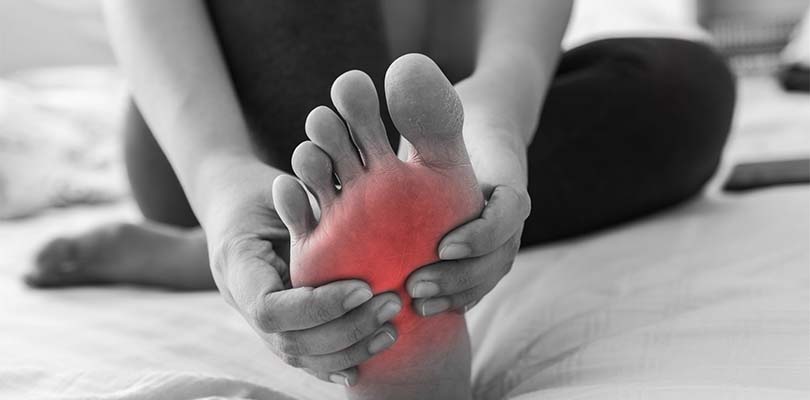Foods to Avoid with Arthritis
While there are over 100 different types of arthritis, the generally accepted definition is that arthritis refers to the inflammation of the joints. Common symptoms include swelling, pain, and inflammation. However, the severity and intensity of the symptoms can vary significantly from patient to patient.
Arthritis is an incredibly common disease that can take a toll on a person, both physically and emotionally. While there are certainly a variety of medications that a person can take, your diet can also play a critical role in how well you feel on a day to day basis. While this may feel somewhat overwhelming, it also gives hope that people can take back some control of their health and do things to help their body thrive even if they have this disease, which can sometimes become debilitating.
Keep in mind, though, that certain foods can enhance inflammation, which is the exact opposite of what you want to happen when you have a disease like arthritis. Believe it or not, some foods can trigger arthritis-like symptoms.
Don't Eat That! Four Foods to Avoid Eating With Arthritis
Here are a few foods to avoid with arthritis.
Fats and Oils
Fats and oils are a normal part of your diet. However, there are certain types of fats that are simply not good for you and should be avoided if you have arthritis. While you should limit saturated fats and omega 6 fatty acids, you should completely avoid trans fats. Not only does trans-fat increase bad cholesterol, but it also decreases good cholesterol.
While you can find small amounts of trans fats naturally in certain meats, the worst trans fats can be found in manufactured goods. Common trans-fat foods you should avoid include:
- Margarine
- Fried foods
- Pre-packaged baked goods
It’s best to avoid any type of food with added trans-fat. It simply isn’t good for your body and can make symptoms worse if you have arthritis.
Sugars
One of the most common, yet difficult foods that people with arthritis should avoid is excessive sugar. The reason this should be avoided is that high levels of sugar in your body can lead to increased advanced glycation end-products (AGEs). The result? Inflammation. Foods with excessive sugar to avoid include:
- Candy
- Bread
- Breakfast cereals
Gout is caused by a buildup of uric acid crystals in the joint. Common gout symptoms include joint pain, swelling, tenderness, and redness in the joint.
However, there are many other foods that are high in added sugars, so always be sure to check the ingredient list. Before consumption, take a quick look at how many grams of sugar are added. You can also consider trying sugar alternatives such as:
- Stevia
- Aspartame
- Maple syrup
- Honey
Salt
If you live with arthritis, then you should absolutely limit your sodium intake. Often, people assume that food must taste ‘salty’ in order for it to have high levels of sodium. However, this is simply not true. Here are a few foods that are actually very high in sodium, and should be avoided:
- Breakfast cereal
- Bagels
- Frozen dinners
- Processed lunch meats
Instead of relying on salt for your meals, try out different herbs and spices that will yield delicious flavors.
You can also opt for sodium alternatives such as AlsoSalt Original. If it proves too difficult to avoid sodium in foods, you can reduce your salt intake simply by not keeping a salt shaker around.
Alcohol
Alcohol is actually a mixed bag when it comes to whether or not you should consume if it if you have arthritis. There are a few studies that indicate that a glass of alcohol every now and then can help reduce your chances of developing arthritis.
However, once you’ve been diagnosed with arthritis, consuming alcohol can come at a risk. For example, many prescription medications for arthritis explicitly say that they should not be taken with alcohol.
Consume a Balanced Diet
It’s important for all people to consume a balanced diet. This means eating plenty of fresh foods, especially fruits and vegetables. Doing so will not only reduce inflammation, but it will help you avoid other serious health conditions that could be complicated even more, especially if you already have arthritis.
Here are a few tips for creating a balanced diet:
- Keep a food journal to document foods that you eat and the reaction that your body has to them.
- Track your meals to ensure that you are consuming the proper number of calories.
- Ensure that you are eating a variety of foods that span all of the food groups.
For more help with creating a healthy diet, you can reach out to your doctor or a nutritionist for additional guidance.
Overview
Living with arthritis can be difficult. However, you still have power over your health! Your diet can certainly play a critical role in your overall health, but it can be even more influential if you have arthritis.
You can take control of your health by watching what you eat, being mindful of what foods to avoid with arthritis, and paying close attention to how your body responds to certain foods. If you would like more specialized information regarding your arthritis diagnosis and your diet, then you should consult with your family doctor.







